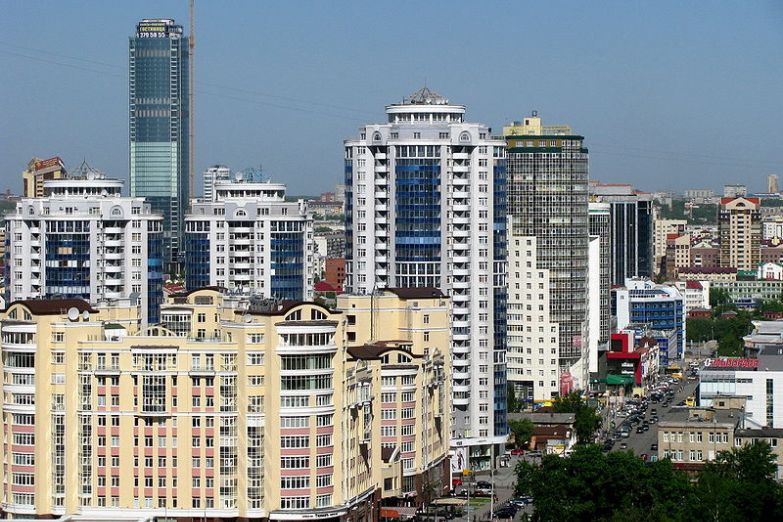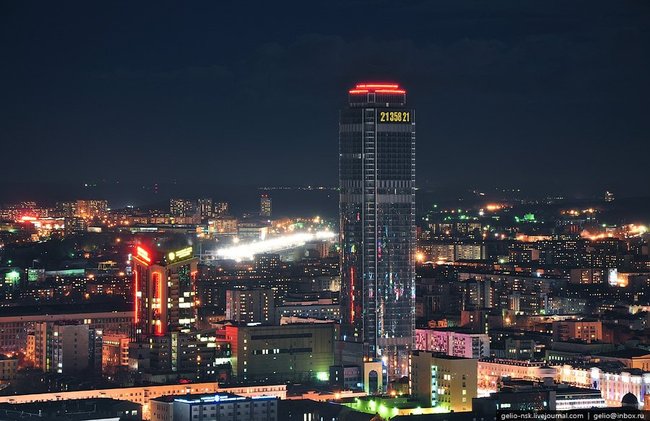Skip to comments.
The End of the New World Order (Russia not playing ball)
Project Syndicate ^
| April 21, 2014
| Christopher R. Hill
Posted on 04/25/2014 6:31:45 PM PDT by 2ndDivisionVet
DENVER – Russia’s annexation of Crimea and ongoing intimidation of Ukraine appears to mean the end of a 25-year period whose hallmark was an effort to bring Russia into greater alignment with Euro-Atlantic goals and traditions. Now the question is: What comes next?
As the weeks pass, it is increasingly clear that the challenge is not so much Ukraine – which will continue to lurch from one crisis to the next, as it has since independence 23 years ago – as it is Russia and its regression, recidivism, and revanchism.
Exactly 25 years ago, in the spring of 1989, Poland and other countries of what was then known as the “Eastern Bloc” took the first steps to break free from their forced alliance with the Soviet Union. Indeed, these countries’ relationship with the Soviet Union was no true alliance at all; rather, they were accurately described as “satellites” – states with limited sovereignty, whose main role was to serve Soviet interests.
As subjugating and ahistorical as those relationships were, much of the world accepted the binding of “Eastern Europe” to the Soviet Union as a logical state of affairs, one in keeping with the world order that emerged at the close of WWII. But what seemed like a permanent division of the world into competing spheres of interest suddenly ended in 1989, when the Eastern Bloc left the Soviet orbit, soon followed by the republics of the Soviet Union itself.
Russia emerged not as a renamed Soviet Union, but rather as a state with its own history and symbols, a member of the international state system that had been absent for some time, but had suddenly returned. And the reborn Russia seemed to be dedicated, in its own way, to the same goals as its post-Soviet neighbors: membership in Western institutions, a market economy, and a multi-party parliamentary democracy, albeit with a Russian face.
This new world order held for almost 25 years. Except for Russia’s brief war with Georgia in August 2008 (a conflict generally seen as instigated by reckless Georgian leadership), Russia’s acquiescence and commitment to the “new world order,” however problematic, was one of the great accomplishments of the post-Cold War era. Even Russia’s reluctance to support concerted Western action, such as in Bosnia and Kosovo in the 1990’s, was based on arguments that could be heard in other European countries. Russian democracy certainly had its share of flaws, but that hardly made it unique among post-communist countries.
Russia’s historical relationship with Ukraine is far more complex and nuanced than many Western pundits suggest. It is difficult to talk about Russian civilization without talking about Ukraine. But, whatever the complexities, Russia’s recent behavior toward its smaller neighbor is not rooted in the legacy of their shared history.
It is rooted in a different legacy – that of a Russian Empire whose habits did not die during the Soviet period. Ukraine did not – and perhaps could not – develop its sovereignty in the way that Poland and others have succeeded in doing since 1989; nonetheless, it is entitled to chart its own future. Russia’s challenge to Ukraine’s status as an independent state is thus a challenge to the entire world, which is why the crisis has risen to the top of the global agenda.
In the United States, the media often point out that most Americans would be hard pressed to find Ukraine on a map. They don’t need to. But Americans do need to understand the challenge they are facing from a Russia that no longer seems interested in what the West has been offering for the last 25 years: special status with NATO, a privileged relationship with the European Union, and partnership in international diplomatic endeavors. All of these seem to be off the table for now.
So what should the West do? An approach based on sanctions that target the Russian economy (and therefore its people) is the preferred alternative of those with the least at stake (US politicians). But sanctions are unlikely to bring about the internal changes that Russia needs, because those changes need to be accomplished by the Russian people.
For the West, the real issue should be shoring up security structures and being prepared for the long haul. NATO has taken an important step in reassuring its eastern members. This is not to say that Russia, having annexed Crimea and intimidated Ukraine, will seek to make similar trouble among former Soviet “allies.” But historical memories die hard.
Poles are well aware that, 75 years ago this year, France and Britain were parties to security agreements that compelled them to declare war on Germany if it invaded Poland. In September 1939, when Germany invaded, both countries dutifully declared war, but neither fired a shot or helped Poland in any tangible way. Poland disappeared from the map of Europe for five years.
The Ukraine crisis is really a Russian crisis. Ukraine – whatever is eventually left of it – will increasingly become a Western country. Russia is showing no sign that it will follow suit.
Instead, Russian President Vladimir Putin seems to be settling in for a long diplomatic winter. The US needs to prepare for it, especially in shoring up partners and allies, and ensuring as best it can that Ukraine is Russia’s last victim, not its first.
TOPICS: Crime/Corruption; Foreign Affairs; Government
KEYWORDS: now; obama; putin; russia
Navigation: use the links below to view more comments.
first previous 1-20, 21-40, 41-46 last
To: Georgia Girl 2
If you have been to Russia lately you would know that 50 miles outside of Moscow its oxcarts. Most roads are only passable in the dry season. Russia hasn’t produced a new product since about 1975. They export oil/gas and wheat. They have what is considered globally to be a modest economy. They have a conscript army. We track their boomers by the radiation leak trail they leave behind. I have been to Russia lately. I have spent a total of four months in Russia over four trips since 2009. I have traveled from Moscow to Krasnodar by car and Krasnodar to Moscow by train. I've been in Tula, Voronezh, and many other smaller cities along the way.
I have also traveled all over the Krasnodarskiy Krai by car. I have been in Timashevsk, Slavensk, Anapa, Dzhugba, Novorossiysk, Abrau-Dyurso, and innumerable small towns and villages along the way.
The conditions in the Russian countryside, at least west of the Urals where I have been are typically no worse than you might find in the backwoods of Pennsylvania or West Virginia here in the States.
Yes, Russian industry has been in the toilet since 1991, but they are steadily coming back. They do produce new cars, new consumer products, and new military hardware. Imported consumer products from cars to cell phones are readily available.
Russian education from elementary school to university is world class. Anecdotally, my perception is that the average Russian high school graduate is light years ahead of the average US graduate, especially in math and science.
Much of what we "know" about Russia is propaganda and misinformation.
41
posted on
04/26/2014 9:54:01 AM PDT
by
billakay
To: billakay
To: billakay
~The conditions in the Russian countryside, at least west of the Urals where I have been are typically no worse than you might find in the backwoods of Pennsylvania or West Virginia here in the States~
In fact western Russia is pretty depressive comparing to Urals and Northwest Siberia where a lot of industries and oil comes from.
To: Georgia Girl 2; MinorityRepublican; billakay
To: wetphoenix
Did you mean Yekaterinburg, Russia?
To: MinorityRepublican
True, is it that much ‘undeveloped’, ‘oxacart’ etc?
Navigation: use the links below to view more comments.
first previous 1-20, 21-40, 41-46 last
Disclaimer:
Opinions posted on Free Republic are those of the individual
posters and do not necessarily represent the opinion of Free Republic or its
management. All materials posted herein are protected by copyright law and the
exemption for fair use of copyrighted works.
FreeRepublic.com is powered by software copyright 2000-2008 John Robinson



 Not a Moscow or St.Petersburb, but Caterinburg - a mediocre industrial town in a class of Cleveland on the egde of Ural Mountains bordering West Siberia. Not an oxacart for sure. Kolyma highway:
Not a Moscow or St.Petersburb, but Caterinburg - a mediocre industrial town in a class of Cleveland on the egde of Ural Mountains bordering West Siberia. Not an oxacart for sure. Kolyma highway:  Not the first class, but paved. And just google map the place to learn what the freaking end of nowhere this place is.
Not the first class, but paved. And just google map the place to learn what the freaking end of nowhere this place is.